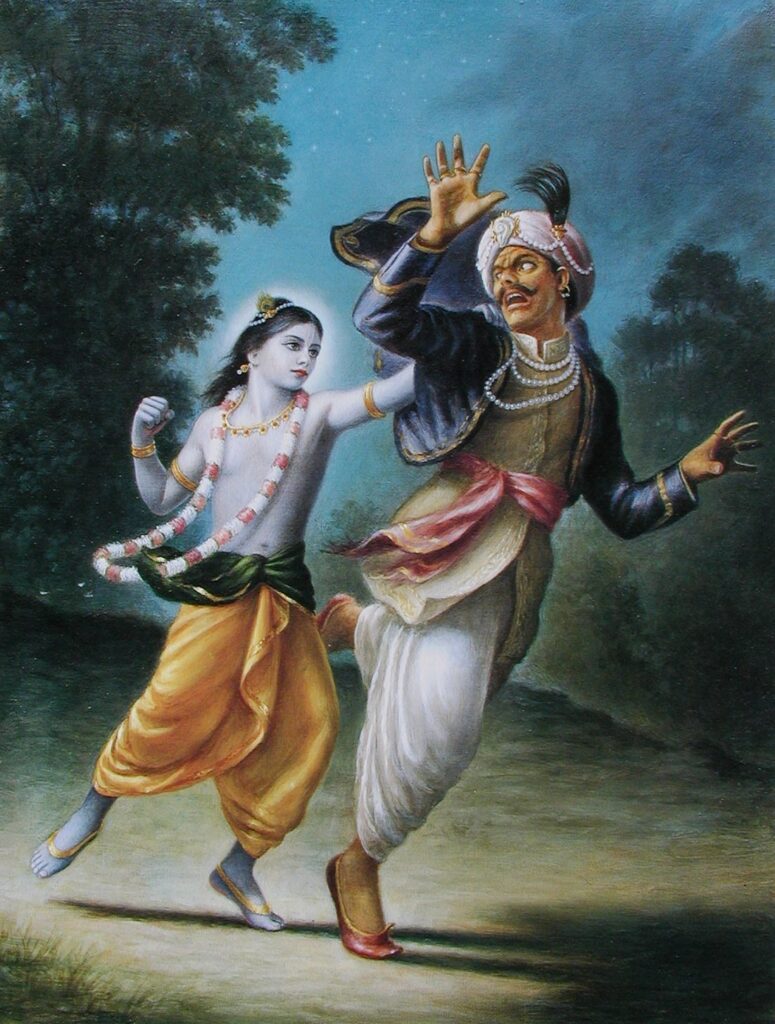Sometimes we may regret past decisions and missed opportunities. One may regret following a professional path instead of another, regret having entered a marriage that ended in frustration, regret missing the opportunity of moving to a different city or country, regret missing the opportunity of a certain investment, and so on.
The point is that most of what happens to us, including the result of many of our decisions is actually determined by our past karma. Our karma determines not only the place, time, and situation where we are going to take birth but also the particular disposition of planets and stars that are going to give us shelter, something that is studied in Vedic astrology. These different celestial bodies then pull us in different directions, influencing our thinking and actions. There is a combination of past desires and decisions that binds us to go through a certain combination of experiences and make certain decisions.

Since the experiences we go through are already largely predetermined, our capacity to change the direction of our lives is actually pretty limited. If one has the karma for a bad marriage, for example, the planets will pull him in certain ways which will bring him to this situation, no matter how much he struggles.
For example, in Vedic astrology, there are certain dispositions of planets that indicate that one’s wife or husband will die early for example. In such cases, nobody wants to marry such a person, because nobody wants to be the one to die young. However, there is always someone who ends up marrying him and facing such a fate.
In reality, however, it’s not that someone dies early because he married such a person, but the opposite: the planets and stars pulled him in this direction exactly because he was supposed to die early. The planets are thus not the cause but just agents of the workings of karma. Therefore, even materially speaking, there is no reason to regret our past fortunes. We go through what we are supposed to go through and things happen in the only way they could have happened.
Instead of focusing on our missed opportunities, it’s much more productive to focus on regretting our past mistakes, asking forgiveness from the people we harmed, trying to change personal traits that are not ideal, and trying to progress in the spiritual path. Whatever experiences we have gone through, the idea is to learn what we can from them and move on. We are not here to have a perfect life but to learn. By seriously working on our personal deficiencies and progressing our spiritual practice, we can gradually destroy our karma, and thus finally become free to change our destiny.
One example of this is mentioned by Srila Prabhupada on SB 6.2.26:
“The men of the higher classes—the brāhmaṇas, kṣatriyas and vaiśyas—do not beget children in the wombs of lower-class women. Therefore the custom in Vedic society is to examine the horoscopes of a girl and boy being considered for marriage to see whether their combination is suitable. Vedic astrology reveals whether one has been born in the vipra-varṇa, kṣatriya-varṇa, vaiśya-varṇa or śūdra-varṇa, according to the three qualities of material nature. This must be examined because a marriage between a boy of the vipra-varṇa and a girl of the śūdra-varṇa is incompatible; married life would be miserable for both husband and wife. Consequently a boy should marry a girl of the same category. Of course, this is trai-guṇya, a material calculation according to the Vedas, but if the boy and girl are devotees there need be no such considerations. A devotee is transcendental, and therefore in a marriage between devotees, the boy and girl form a very happy combination.”
For ordinary people, astrology (at least when properly applied) is an effective tool for calculating marriage compatibility and other factors in life, since Vedic astrology can be used to understand one’s karma, which is the main factor behind these happenings. Ordinarily, if astrology says that two persons are incompatible for marriage, that’s something that should be seriously taken into account.
However, here Srila Prabhupada concludes that if both the boy and the girl are devotees, there is no need for such considerations. How is it so? The point is that devotees who are serious in their spiritual practice can destroy their previous karma, cutting thus the ropes that bind them to certain personal traits and sets of behavior. When this happens, astrology stops being an effective tool to predict anything, since the karma that was binding them to certain actions and reactions was removed. In this case, there is freedom to change, and even a union that previously would be considered incompatible can become successful.
Of course, the difficulty is that nowadays not many of us can achieve a level of devotional service that is sufficient to make us free from karma, at least not at an early age, and therefore marriages between devotees remain largely under the three modes of material nature and all the ups and downs created by the results of past karma. However, this doesn’t make the statement of Srila Prabhupada untrue. It’s just a matter of us achieving the level of qualification he is mentioning there.
